
Blog -
Phonics is the key to unlocking reading. Reading is the key to unlocking learning
ELE, English Hub lead and Primary Head of School Beth Dawson talks phonics
Carmel Research School is no longer active. We are continuing to support schools in the region through the wider Research School Network.
Search for other Research Schools in your areaShare on:

by Carmel Research School
on the
Unpacking the evidence: The problem with (the way that people use) the EEF Toolkit…
November 19
David Bailey – Director of Carmel Research School
The Teaching and Learning Toolkit (https://educationendowmentfoundation.org.uk/evidence-summaries/teaching-learning-toolkit/) is an extraordinarily useful resource. It provides a summary of some of the best available evidence. It is not the only summary or source of evidence, but it does give a good starting point for school leaders when deciding on their ‘best bets’ when prioritising how to ‘spend’ their resources (finances, staffing, time). This is particularly important when spending vital Pupil Premium funding to support the most disadvantaged learners.The EEF have worked hard to make the evidence accessible to all and summarise it in a way that makes sense. It has a list of overarching themes, from ‘Arts Participation’ to ‘Within-class attainment grouping’. These are rated in three ways: A number of months additional progress that might be expected if you were to deliver a good intervention well. A cost of introducing the intervention a ‘padlock’ assessment of the strength of the available evidence that was used in rating each theme. It can even be sorted, so that the most effective (or cheapest or strongest evidence) can be placed at the top.
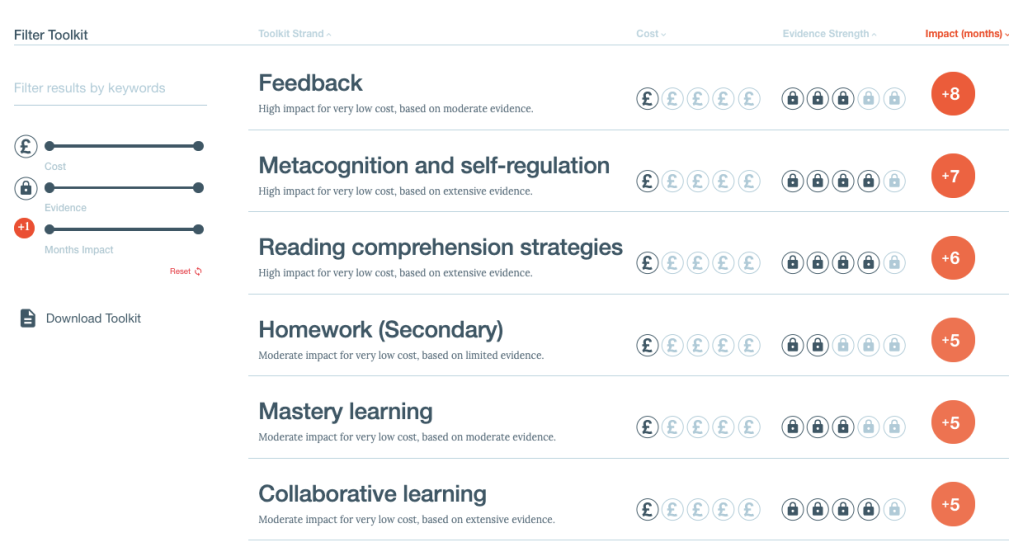
Overall, it is very simple to access this information and to draw conclusions. However, this is a bit like reading a novel by reading the synopsis on the back page. However well written this, it is still a summary. This is where the simplicity might lead some to draw conclusions that are only based on half the story. When we are working with schools, we get to hear some of the interpretations of this evidence. To give some examples: Some questions to help make better sense of this: What do you mean by ‘Metacognition and self-regulation? To answer this, the answer can be found by clicking on the theme. This gives an overview of what is contained within the them, key documents and trials.
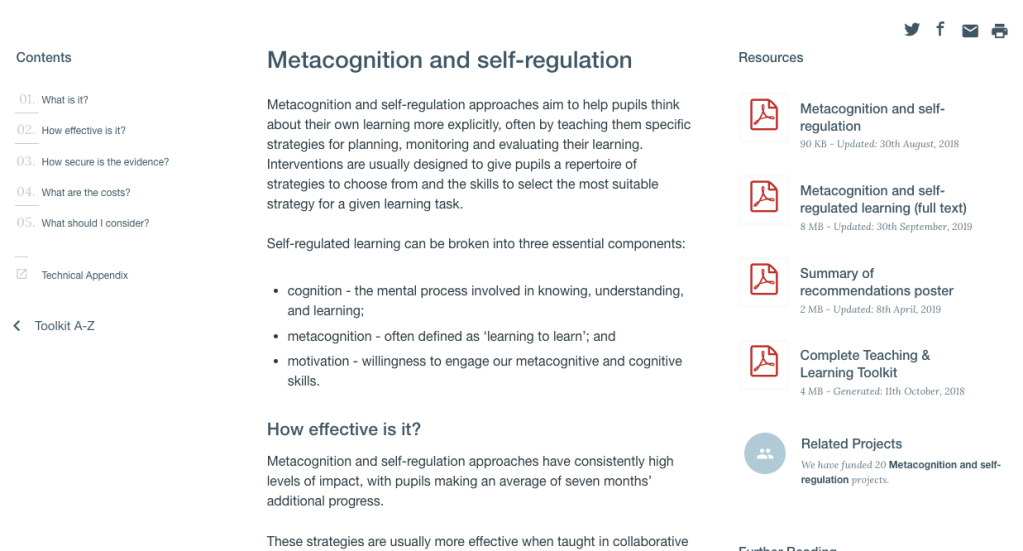
Would this work in our school?To answer this, it is really important to scroll to the end of this page. Here there are some points to consider.
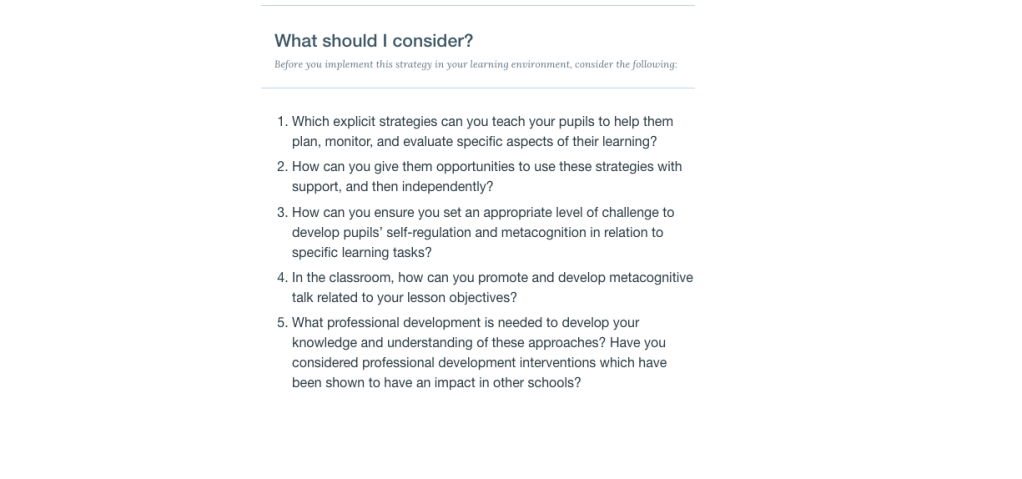
This helps you pick out some of the more important points and should be considered alongside the implementation guidance in the report ‘Putting Evidence to Work’, which can be found at https://educationendowmentfoundation.org.uk/tools/guidance-reports/a‑schools-guide-to-implementation/ This will give you some pointers to think about when deciding on whether or how to embed these approaches.Does the research apply to our school (would it work in our context)? On each page, there is a summary of projects that include this theme, including the conclusions for projects that have been evaluated completely. This is listed as related projects.

Following this link takes you to a page of other projects so that that you can check out the detail of where these worked and how these were carried out.
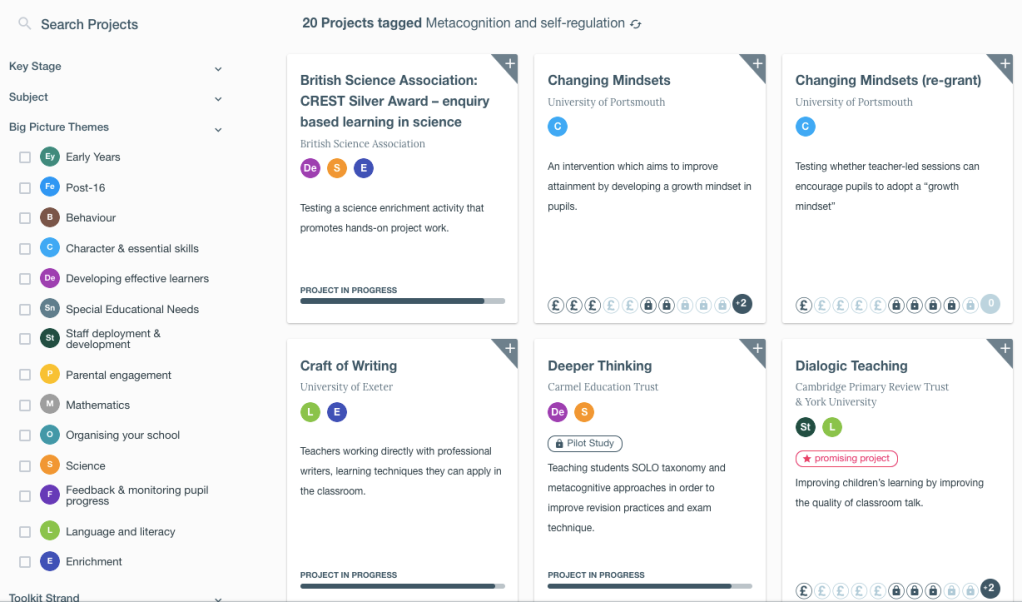
Look out for promising projects, but beware of the context, the one listed here (Dialogic Teaching) is for primary schools, which might have less relevance for a secondary school. Clicking on the intervention will give an overview, which is helpful to understand how it was intended to work.
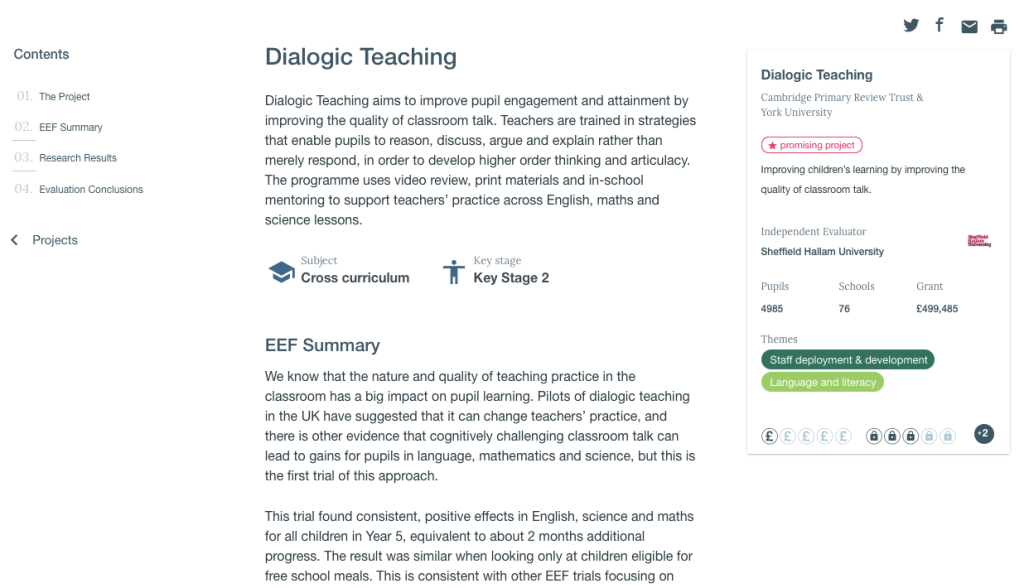
Further down, it gives a breakdown of the results on areas of child performance, so that you can consider this in light of your specific needs.
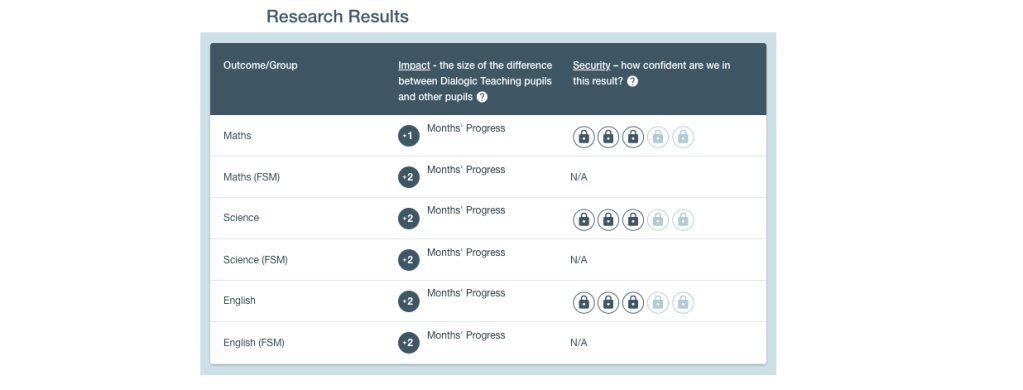
Further down, there is some clearer guidance about the kinds of schools involved in the study, and how closely related they are to your school context.

It also gives some pointers for implementing this particular intervention.

…and the costs.

Like reading a full novel provides the full story, those who spend those extra few minutes reading the details, might save themselves hours of wasted time and effort.

Blog -
ELE, English Hub lead and Primary Head of School Beth Dawson talks phonics

Blog -
Schools support officer Kevin Beston, shares his experience of developing metacognition.

Blog -
ELE Craig Barnes discusses Enrichment programmes and the effects on student outcome
This website collects a number of cookies from its users for improving your overall experience of the site.Read more